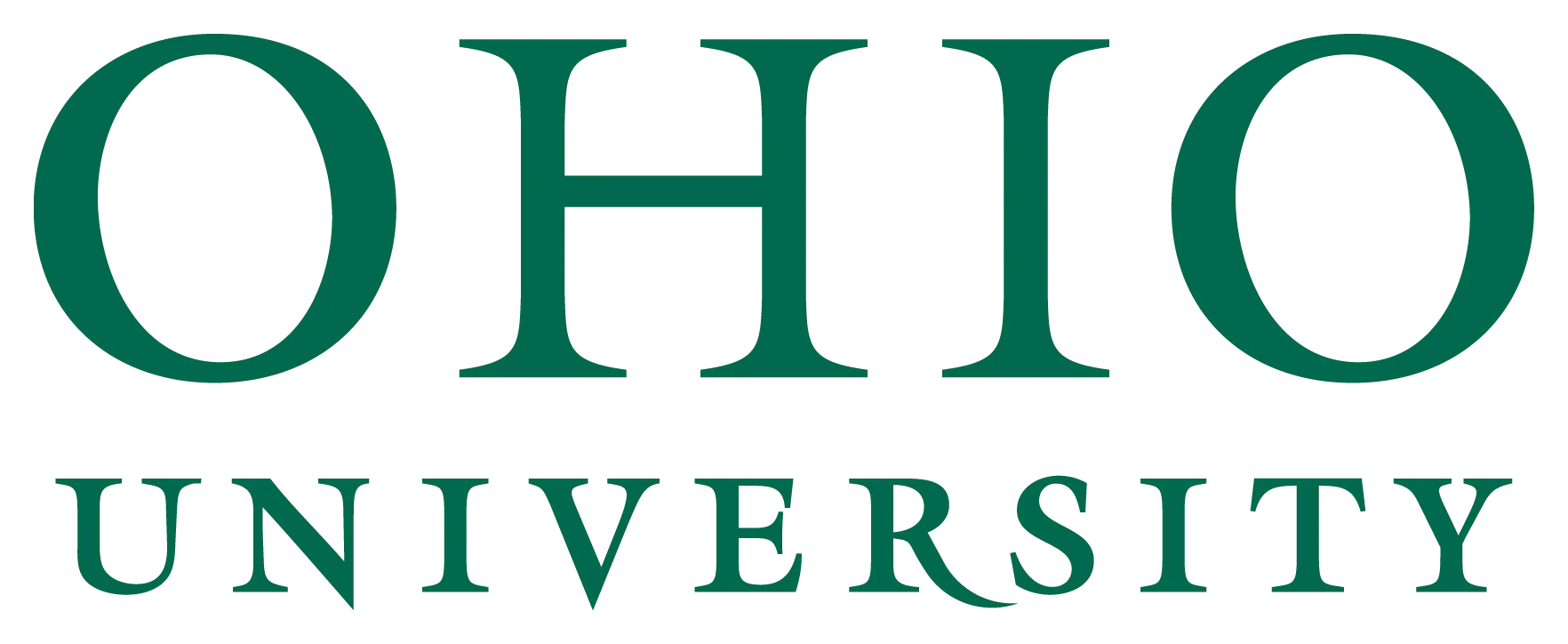As worship ministries adapt to diverse congregational needs, the demand for music educators with theological depth and artistic expertise continues to rise. A Master of Music Education Online equips students to lead with musical excellence, spiritual insight, and biblical understanding. Programs from Liberty University, Boston University, and Kent State University integrate core music education with pedagogy and leadership training, ideal for church and academic settings. Institutions like Eastern Washington University, Southern Utah University, and the University of Florida offer flexible learning formats that support working professionals. Rowan University, Campbellsville University, Illinois State University, and Ohio University emphasize curriculum design, choral conducting, and culturally responsive teaching methods. These programs foster dynamic leaders who can craft spiritually enriching and theologically grounded worship experiences.
When choosing a program, prospective students should evaluate denominational fit, faculty expertise, and performance opportunities to ensure a strong alignment with their vocational calling in worship leadership or music education.

Highly Ranked Master of Music Education Online Programs
| Logo | Name of the University | Description |
|---|---|---|
| Liberty University | Offers a flexible, faith-integrated curriculum focused on music pedagogy, research, and leadership, designed for working educators seeking advanced skills in teaching and worship leadership. | |
| Boston University | Provides a rigorous, research-intensive curriculum emphasizing music education theory, critical inquiry, and multicultural perspectives, preparing professionals for leadership roles in school and community settings. | |
| Eastern Washington University | Emphasizes practical teaching strategies and contemporary music pedagogy, with coursework designed to support current educators in enhancing their instructional methods and classroom impact. | |
| Southern Utah University | Combines music education with innovative instructional design, encouraging student-centered learning and professional growth within a fully online, interactive learning environment. | |
| University of Florida | Features a nationally recognized faculty, focusing on music technology, curriculum development, and culturally responsive teaching to empower educators with modern, research-based instructional tool | |
| Rowan University | Balances academic rigor with applied learning, offering courses in conducting, curriculum planning, and music theory, ideal for K–12 music educators seeking advanced credentials. | |
| Kent State University | Provides comprehensive training in music research, curriculum development, and leadership, tailored for music educators seeking career advancement and a deeper understanding of educational practices | |
| Campbellsville University | Blends Christian principles with advanced music education, focusing on choral conducting, instructional leadership, and curriculum design for ministry-based and classroom teaching roles. | |
 | Illinois State University | Prepares educators through a performance-based and scholarly approach, emphasizing research, music literacy, and diverse instructional strategies for various school and ensemble contexts. |
 | Ohio University | Delivers a comprehensive blend of research, pedagogy, and musicianship, helping professionals grow as reflective practitioners and leaders in contemporary music education environments. |
Program Aspects & Considerations
When selecting an online Master of Music Education program, important aspects and considerations include:
- Accreditation and Reputation: Choosing a program accredited by agencies like NASM ensures a quality education and a recognized degree.
- Curriculum and Focus: Aligning the program’s courses with your professional goals, whether it’s in research, performance, or pedagogy.
- Faculty Expertise: Researching the faculty’s experience as both educators and musicians is crucial for valuable mentorship.
- Program Flexibility: Assessing if the learning format (asynchronous/synchronous), pace, and workload fit your schedule.
- Cost and Financial Aid: Comparing the total cost, tuition per credit, and available scholarships or grants for financial feasibility.
- Admissions Requirements: Checking for specific prerequisites, like a bachelor’s degree in music education or teaching experience.
- Technology and Resources: Ensuring you have access to the necessary software, online platforms, and library resources.
- Capstone Experience: Evaluating if the program offers a thesis or final project that aligns with your professional interests.
- Networking Opportunities: Investigating how the program facilitates connections with peers and professionals in the music education field.
- Program Outcomes: Researching where graduates are working and how the degree has impacted their careers.
Top Accredited Master of Music Education Online Programs (2025 Rankings)
Top Accredited Master of Music Education online programs enable educators to refine their musical talents while advancing their teaching careers. Designed for working professionals, these programs provide flexibility and expert guidance to enhance instructional effectiveness. Students engage with experienced faculty and peers, gaining valuable insights into contemporary music education practices. Graduates emerge as confident leaders, ready to inspire the next generation of musicians in schools, communities, and faith-based settings. Here are the top accredited universities that offer a Master of Music Education Online:
To Link to this page, please copy and paste this code into your website
<a href="https://www.onlinemasterscolleges.com/master-of-music-education-online/">Master of Music Education</a>
Code copied successfully!
Liberty University- MBA in Leadership
Liberty University’s online Master of Arts in Music Education program offers a comprehensive curriculum for music educators seeking to advance their careers. This program is designed to enhance pedagogical skills, deepen musical knowledge, and prepare graduates for leadership roles in various educational settings. The curriculum is built on a biblical worldview, aiming to equip students to integrate faith and music education effectively. The online format provides a flexible and accessible pathway for working professionals to pursue a graduate degree.
Highlights:
- Christ-centered Education: Integrates a biblical worldview into music education curriculum and leadership practices.
- Flexible Pacing: Offers 8-week courses with multiple start dates, accommodating working educators.
- Comprehensive Curriculum: Focuses on advanced techniques, conducting, and research in music education.
Quick Facts:
| Program Length | Credits | Cost Per Credit | Accreditation | GRE Required |
| As little as 1.5 years | 30 credits | $410 (2025-2026, part-time School of Divinity rate) | Southern Association of Colleges and Schools Commission on Colleges (SACSCOC), National Association of Schools of Music (NASM) | Not required |
Why It Made Our List: This program stands out for its strong emphasis on a biblical worldview, its flexible online format, and a curriculum designed for practicing music educators.
Boston University- Master of Music Education Online
Eastern Washington University- Master of Music Education Online
Southern Utah University- Master of Music Education Online
University of Florida- Master of Music Education Online
Rowan University- Master of Music Education Online
Kent State University- Master of Music Education Online
Campbellsville University- Master of Music Education Online
Illinois State University- Master of Music Education Online
Ohio University- Master of Music Education Online
Source – Integrated Post Secondary Education Data System & University Data
*Tuition rates are for in-state and per year. Program-specific rates may apply.
**NA – data not available
Our Ranking Methodology: How We Chose the Best Master of Music Education Online Programs
The best Master of Music Education online programs were selected based on key factors such as faculty expertise, student satisfaction, flexibility, and graduate success. The OMC team applied its proven methodology, analyzing data from academic institutions, industry trends, and educational outcomes. Programs that demonstrated excellence in professional development opportunities, learning support, and overall value were prioritized. This approach ensures a reliable guide for identifying top-quality options in music education advancement.
Why Choose a Master of Music Education Online
Choosing a Master of Music Education online offers the opportunity to advance professionally while maintaining work-life balance. This flexible format supports ongoing teaching careers, allowing educators to apply new skills immediately. The degree enhances leadership potential, deepens musical expertise, and strengthens instructional strategies. It also opens doors to roles in academic, administrative, and worship settings, making it a valuable investment for those passionate about shaping future generations through music.
Benefits of Online Learning
The online programs are recognized for their flexible and accessible nature, offering numerous advantages for diverse learners.
- Flexibility and Convenience: Study from anywhere, at any time, fitting coursework around work, family, and other life commitments.
- Accessibility to Programs: Access top-tier programs regardless of your geographical location or physical limitations.
- Self-Paced Learning: Progress through course material at your own pace, revisiting complex topics or accelerating through familiar ones.
- Reduced Costs: Saves money on commuting, housing, and other associated living expenses compared to on-campus study.
- Diverse Perspectives: Interact with a global cohort of students and faculty, enriching your understanding of varied cultures.
- Technology Skill Development: Enhance digital literacy and comfort with online learning platforms, valuable for modern professional environments.
- Continued Employment: Maintain current employment while simultaneously pursuing advanced academic qualifications.
- Personalized Learning: Many platforms offer adaptive content and resources, catering to individual learning styles and needs effectively.
- Immediate Application: Apply newly acquired knowledge directly to a current professional setting, enhancing practical skills and growth.
Growing Demand for Music Education Professionals
- High Demand: Schools, community organizations, and faith-based institutions increasingly seek skilled music educators to lead dynamic programs that support student development, cultural expression, and creative engagement across diverse populations.
- Versatile Skills: Music education professionals possess transferable skills such as leadership, communication, creativity, and curriculum planning, making them valuable in classroom settings, arts administration, worship leadership, and educational consulting.
Industries Hiring Music Education Professionals
Industries hiring Music Education Professionals are in demand across a wide array of sectors. Here are some key industries:
- Educational Institutions: K-12 public and private schools, as well as colleges and universities, employ music teachers and administrators.
- Private Instruction: Professionals can operate private studios, teaching individual students or groups for all ages and skill levels.
- Non-Profit Organizations: Community arts centers, youth orchestras, and music-focused non-profits need educators and administrators.
- Healthcare: Music therapists use music to address the physical, emotional, and social needs of patients in hospitals and care facilities.
- Music Industry: Music publishers, retail companies, and instrument manufacturers hire specialists for education and outreach.
- Technology and Media: Roles in music software development, podcast production, and online curriculum design require music education expertise.
Master of Music Education Online Curriculum Overview
The Master of Music Education online program features a comprehensive curriculum designed to develop advanced skills in teaching, research, and musical understanding. Students explore critical areas of music education, supported by foundational and advanced studies. The program culminates in a thesis or curriculum project, allowing in-depth exploration of a chosen topic. This capstone experience strengthens professional expertise and enhances career opportunities in educational, performance, or leadership settings across diverse music environments. Here’s an overview of the curriculum.
Core Courses and Electives
Core Courses
- Advanced Contemporary Arranging Techniques: This course explores modern arranging practices for various ensembles and vocal groups. Students learn to adapt contemporary styles, apply harmonic concepts, and create innovative musical textures. Emphasis is placed on creativity, clarity, and stylistic authenticity to prepare educators for real-world performance and classroom arrangement challenges.
- Research Methods in Music Education: Students are introduced to qualitative, quantitative, and mixed-method research techniques relevant to music education. The course emphasizes critical analysis, research design, and ethical considerations. Learners develop skills to evaluate existing literature and create research proposals, preparing them to contribute meaningfully to the academic and professional music education community.
- Principles of Curricula and Pedagogy for Music Education: This course focuses on designing and implementing effective music curricula across various educational settings. Students explore instructional theories, learner-centered approaches, and assessment strategies. Emphasis is placed on inclusive and adaptive teaching methods that foster creativity, musical growth, and student engagement at all grade levels and ensemble types.
- Biblical Foundations of Worship: This course examines the theological and scriptural basis for worship within Christian traditions. Students explore biblical texts, historical developments, and practical applications of worship principles. The course prepares educators and worship leaders to integrate faith and music meaningfully, enhancing spiritual depth and authenticity in both academic and church environments.
Specializations
Specializations allow students to tailor their studies toward a focused area of interest within music education, aligning academic goals with professional aspirations. By concentrating on a specific field, learners deepen their expertise, enhance their credentials, and develop targeted skills relevant to their career path. This focused approach empowers graduates to stand out in competitive roles and make meaningful contributions in their chosen educational, leadership, or performance contexts.
Capstone Projects and Hands-On Learning
Here are the key features of capstone projects and hands-on learning in a Master’s in Music Education:
- Personalized Research Focus: Enables students to explore specialized topics through research or project development aligned with professional goals and academic interests.
- Thesis or Curriculum Option: Offers flexibility to choose between a scholarly thesis or a practical curriculum project based on career direction and learning style.
- Showcase of Mastery: Demonstrates comprehensive understanding and skills through a final project that reflects depth of study and subject matter expertise.
- Real-World Application: Connects coursework with classroom practice by applying instructional techniques and theories in school, community, or ministry settings.
- Creative Skill Development: Enhances musical and pedagogical abilities through activities like arranging, conducting, and instructional design in practical contexts.
- Collaborative Experience: Encourages teamwork and peer feedback during interactive projects that simulate challenges faced in contemporary music education environments.
Master of Music Education Online Admission Requirements
General requirements for online Master of Music Education programs typically include:
- Accredited Bachelor’s Degree: A bachelor’s degree in music education or a related music field from a regionally or nationally accredited school.
- Minimum GPA: A minimum undergraduate GPA, often 2.75 to 3.0, is needed to show academic readiness.
- Official Transcripts: Submitting official transcripts from all colleges and universities attended is required for a full review.
- Letters of Recommendation: Recommendations from professionals who can speak to your teaching potential and academic capabilities.
- Statement of Purpose: An essay explaining your teaching philosophy, career goals, and reasons for pursuing the program.
- Resume/CV: A professional resume or CV that highlights relevant teaching experience, certifications, and musical accomplishments.
- Teaching Experience: Many programs require a certain amount of full-time K-12 music teaching experience for admission.
- Portfolio or Audition: A video of you teaching or conducting, or a portfolio of lesson plans, may be required.
- GRE Scores: While many programs have waived the GRE, some may still require it, especially for applicants with lower GPAs.
Master of Music Education Online No GRE Programs
The GRE (Graduate Record Examination) is a standardized test used to assess readiness for graduate-level academic work. It measures verbal reasoning, quantitative skills, and analytical writing. Recently, many universities have waived the GRE requirement to promote accessibility and equity. Institutions recognize that academic performance, work experience, and personal statements often provide a more holistic view of a candidate’s potential, especially for professional and online programs focused on practical expertise.
Cost of a Master of Music Education Online Program
The cost of a Master of Music Education Online in the USA can vary significantly.
- Average Tuition Range: Online MME programs can cost anywhere from $15,000 to over $40,000 for the entire degree. The cost per credit hour typically falls between $400 and $700, but can be higher at private institutions.
- Factors Affecting Cost: The final price is influenced by the type of institution (public vs. private), program length, and the number of required credits. Additional fees for technology, course materials, and graduation can also increase the total cost.
Financial Aid and Scholarships for Master of Music Education Online Programs
As many master’s programs come with higher costs, many students worry about affordability and potential student debt. Financial aid and scholarships ease this burden by reducing tuition expenses and offering support based on merit or need. Grants, fellowships, and institutional aid make pursuing a Master of Music Education online more accessible, enabling students to focus on learning and career development without being overwhelmed by long-term financial obligations.
Scholarships and Grants
| Scholarship | Liberty University Scholarships |
| Description | Liberty University offers a range of scholarships for online students to make college more affordable. Awards are based on academic merit, affiliations, or service. Each scholarship has specific eligibility requirements and deadlines. Applying early increases access to more opportunities, helping students reduce educational costs while pursuing their degrees through Liberty University Online. |
| Award/Amount | Varies |
| Application Deadline | Varies |
| Scholarship | BMI Foundation |
| Description | The BMI Foundation, established in 1985, is a nonprofit supporting music students through scholarships, awards, and grants. It promotes the creation, performance, and study of music by funding talented individuals. Graduate students in music education benefit from opportunities that encourage artistic growth, academic excellence, and professional development in diverse musical disciplines. |
| Award/Amount | Varies |
| Application Deadline | Varies |
| Scholarship | Music Forward Foundation |
| Description | Music Forward Foundation provides scholarships to students from under-resourced communities pursuing careers in the music industry. With a strong commitment to diversity, equity, and inclusion, it empowers youth through artist and career development programs, internships, and educational funding. These scholarships support future music leaders, helping them access education and industry opportunities nationwide. |
| Award/Amount | Varies |
| Application Deadline | Varies |
Tuition Assistance and Employer Sponsorships
Tuition assistance and employer sponsorships help reduce the financial burden of graduate education by covering part or all of tuition costs. Many employers offer reimbursement or direct payment for job-related degrees, encouraging professional development and retention. These benefits enable students to pursue a Master of Music Education without incurring significant debt, while also gaining skills that directly enhance their workplace performance and contribute to long-term career advancement.
Federal Student Loans and FAFSA
- Federal Student Loan: These are loans from the U.S. government to help students pay for education, with benefits like fixed interest rates and income-driven repayment plans. They must be repaid with interest.
- FAFSA (Free Application for Federal Student Aid): This is the mandatory form students fill out to be considered for federal financial aid, including grants, work-study funds, and federal loans.
Master of Music Education Online Careers and Salaries
Graduates of a Master of Music Education online program often experience increased earning potential and expanded opportunities for professional advancement. This degree enhances qualifications for leadership roles and can lead to more competitive salaries within educational and artistic settings. With advanced training in pedagogy, musicianship, and research, professionals become more valuable to institutions and communities, contributing to improved job stability, long-term career growth, and greater financial security in the music field. Some of the domains where a graduate of an online Master of Music Education can find employment include:
| Job Title | Average Annual Salary | Key Responsibilities |
|---|---|---|
| Music Teacher | $50,760 | Teach music, assess student progress. |
| Music Producer | $61,173 | Oversee recording, manage production workflow. |
| Musician or Singer | $52,768 | Perform live, practice musical repertoire. |
| Music Composer | $69,364 | Write music, revise musical scores. |
| Music Directors | $63,670 | Conduct ensembles, arrange musical performances. |
Accreditation for Master of Music Education Online Programs
Accreditation ensures that the Master of Music Education online programs meet high academic and professional standards. It enhances the program’s credibility, improves credit transferability, and increases employment opportunities. Regional accreditation is essential, while some programs may also be accredited by the National Association of Schools of Music (NASM). This specialized accreditation confirms rigorous music training and institutional integrity, helping students gain recognition, licensure, and access to financial aid and graduate-level teaching positions.
How to Choose the Best Master of Music Education Online Program for You
Here are some factors to consider when selecting an online Master of Music Education program:
- Accreditation and Reputation: Ensuring the program and institution are accredited by recognized agencies is crucial for degree validity.
- Curriculum Alignment: Verifying that the program’s courses and concentrations align with an individual’s professional goals is important.
- Faculty Expertise: Researching the faculty’s experience as educators and musicians for valuable mentorship and guidance is recommended.
- Program Flexibility: Assessing whether the learning format (asynchronous vs. synchronous), pace, and workload align with an individual’s schedule is necessary.
- Cost and Financial Aid: Comparing tuition, potential financial aid, and scholarships for financial feasibility is advised.
- Admissions Requirements: Checking for specific prerequisites, such as a bachelor’s degree in music education or teaching experience, is a key step.
- Technology and Resources: Ensuring access to necessary software, online platforms, and library resources is important.
- Capstone Experience: Evaluating if the program offers a thesis or final project that aligns with an individual’s professional interests is helpful.
- Networking Opportunities: Investigating how the program facilitates connections with peers and professionals in the music education field is useful.
- Program Outcomes: Researching where graduates are working and how the degree impacted their careers is an important step.
Frequently Asked Questions About Master of Music Education Online Programs
What is a Master of Music Education online program?
A Master of Music Education online program is a graduate degree designed for current or aspiring music educators. It provides advanced training in music theory, teaching methods, and leadership, delivered through flexible online platforms that allow professionals to balance their studies with personal and professional responsibilities.










